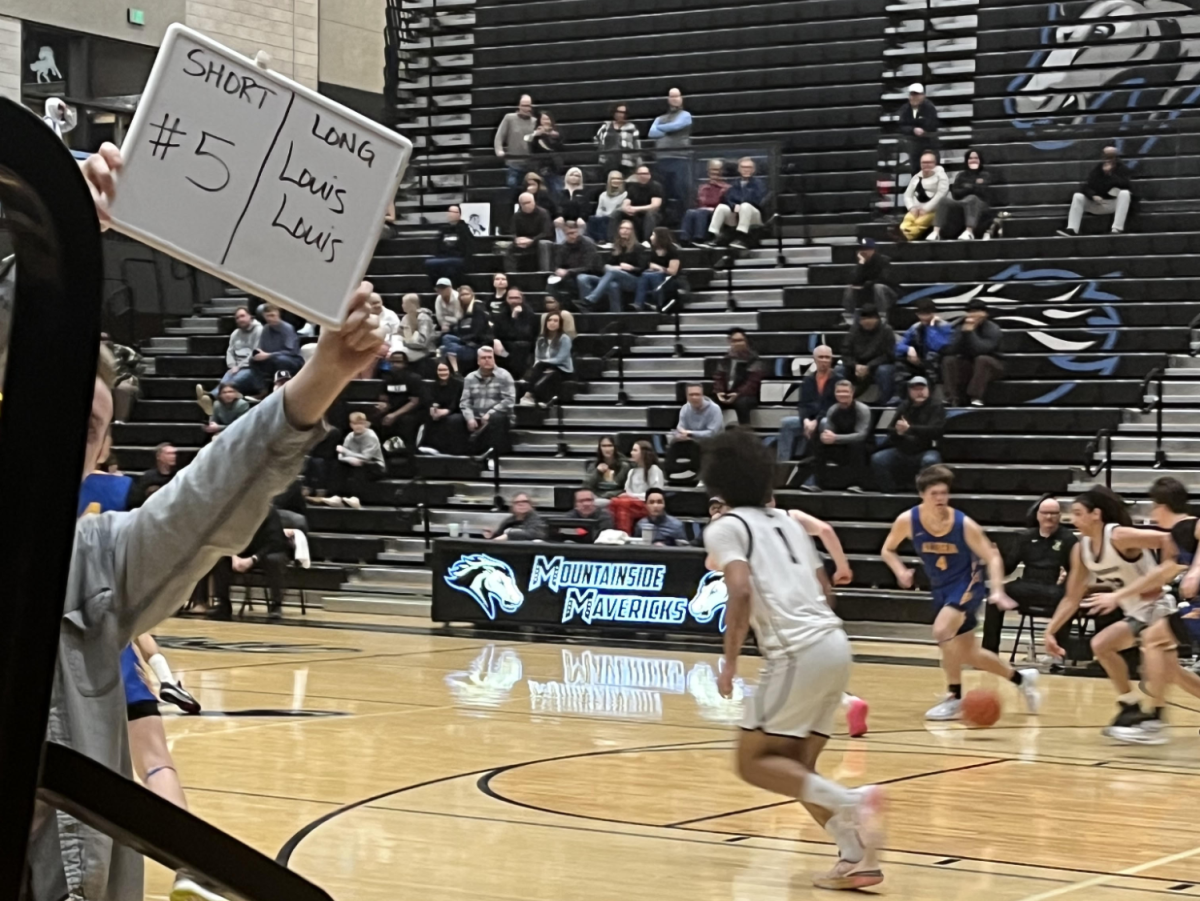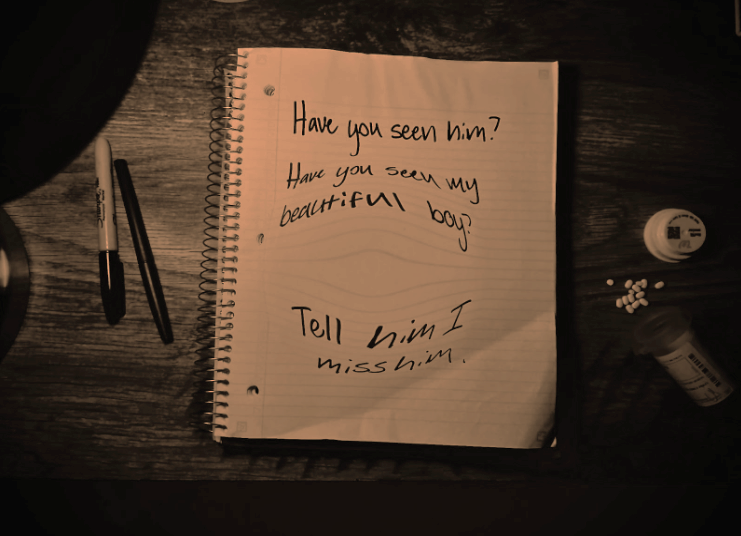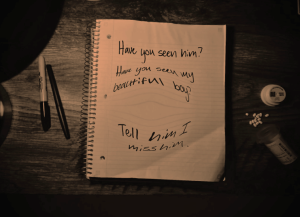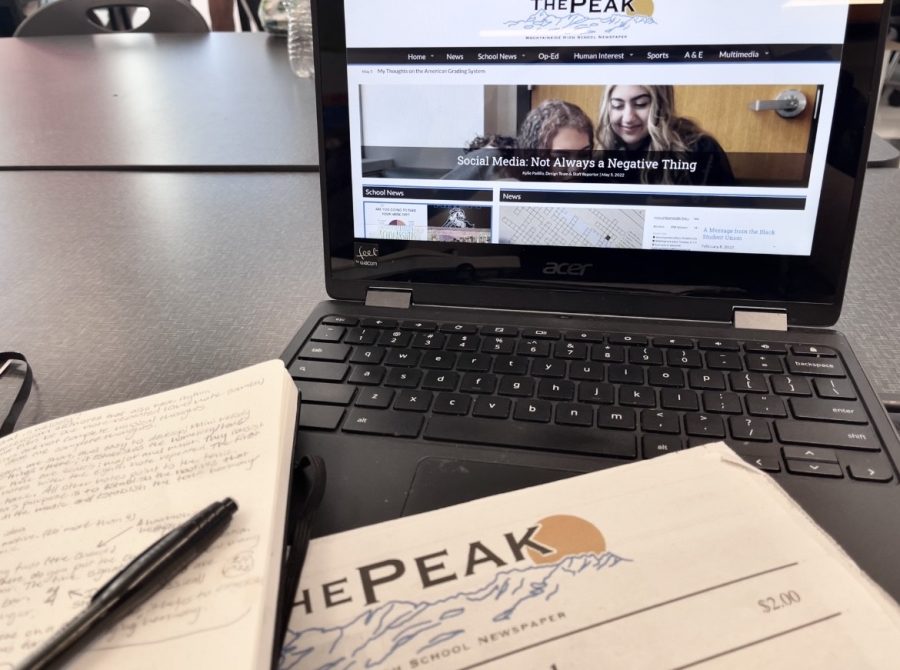“Before I Fall” Raises Important Questions on Teen Suicide Portrayal
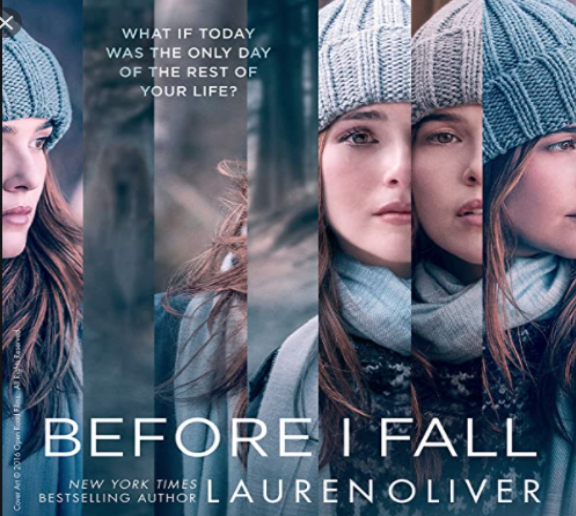
Screenshot from https://www.amazon.com/Before-I-Fall-Lauren-Oliver-audiobook/dp/B003AOVPAM
March 1, 2021
Author Lauren Oliver published her New York Times bestselling novel “Before I Fall” on February 14, 2010. Its movie adaptation was filmed in Squamish, British Columbia. It was released on March 3, 2017 to bring awareness to teen suicide prevention.
The film dives into the topic of teen suicide, as many major movies and TV shows have done recently. “13 Reasons Why” (produced by Selena Gomez) is a prime example of a show with the plot revolving around a teenage girl’s suicide.
The show received lots of backlash from parents, due to the popular consensus that the show romanticized suicide, or presented it as an option for teens dealing with mental health problems. “13 Reasons Why” has since had some provocative scenes edited, with a disclaimer at the beginning of each episode with suicide hotlines to call if needed.
Needless to say, creators willing to take on the heavy task of depicting teen suicide in their film projects are under a high level of scrutiny. Since teen suicide is such a hot topic in the modern world, parents across the globe unite in wanting media depiction of it to be helpful, not harmful, to their teen audiences.
We will now explore the film “Before I Fall”, and how its message contributes to teens’ perception of suicide: Is the film helpful, or harmful?
“Before I Fall”’s Insightful Plot
High school senior Samantha Kingston has an elite social status, a highly sought-after boyfriend, supportive parents, and to top it all off, she’s gorgeous. What more could an American teenage girl ask for? On its surface, her life is picture-perfect.
Sam’s close-knit group of girlfriends (led by mean girl Lindsay Edgecombe) is highly regarded as the most popular group of girls at Thomas Jefferson High School in Ridgeview, Connecticut. They’re practically local celebrities–feared, well-known, and blissfully entitled.
One of their favorite pastimes is bullying their prime victim, Juliet Sykes. When she walks by, the girls make a huge scene of calling her a “psycho”.
However, Sam’s life skids to a halt when she wakes up on February 12 over and over again, reminiscent of 1993’s hit “Groundhog Day”. Sam struggles to understand the meaning behind why she’s being forced to relive the same day on a loop.
Quite early in her repeating cycle of days, Sam’s neighbor tells her that Juliet died by suicide the previous night. Sam is overwhelmed with guilt for participating in ruthlessly bullying Juliet for so long. She wishes she had paused to consider how negatively impactful that was for her to endure every day. Throughout the film, Sam’s character development is shown: she strives to become a better person and works on improving her morals.
Sam soon has the epiphany that the reason she’s reliving February 12 every day is because she must save Juliet’s life.
Mountainside High’s Counselor David Nelson’s Thoughts
In a January 12 interview with The Peak, David Nelson shared his views. Since he deals with high-schoolers on a daily basis, he is incredibly well-versed in the topic of teen mental health. Here are his thoughts on teen suicide portrayed in the media:
When asked “Overall, do you believe that the majority of movies you’ve seen that portray teen suicide have a positive or negative effect on their teen audiences? Why?” Mr. Nelson responded:
“This is a tricky question, as both can be true.” Mr. Nelson went on to say how he used to think most media portraying teen suicide wasn’t helpful, but that lately, modern media has been more helpful due to “giving more context”.
“Teens who die by suicide typically feel alone, unloved, like the world would be a better place without them, like no one cares, etc. If a teen who is feeling this way watched a movie about someone they could relate to on that level, but saw that really, their perception was not realistic and there actually were a lot of reasons to stay alive & people who loved and wanted to support them, it could have a very positive affect. I think this is the direction movies are going in now, where before, I worried that these movies might seem like they are suggesting suicide as a viable option or causing students who weren’t previously thinking about suicide to start thinking about it.”
In response to the second question, “Would you let your teenage child watch media portraying teen suicide? Why? What age would they have to be and what limits would you set, if any?” Mr. Nelson said:
“I would view what it was they wanted to watch prior to having them watch it to be sure it was portrayed in a way that prevented suicide rather than suggested it…If it was a topic that came up from them, I would want to help educate them, but it may be hard to find something age appropriate if they were too young…If my child reached middle school age, I would let them watch…I would still want to view it first to make sure it was portrayed in the right way. Regardless of age, I would want to know what they are viewing and have discussion about it.”
He went on to elaborate: “Suicide has become a topic that is addressed more and more in schools, which I think is a good thing. It used to seem like it was better to avoid using the word ‘suicide,’ because if we didn’t talk about it, maybe kids wouldn’t think about it. Now, we know that naming it and talking about it are key in preventing suicide. The education has got to happen, and resources need to be widely shared and readily available.”
Mountainside High Sophomore Maya Gooneratne’s Takeaway From the Film
Maya Gooneratne, a sophomore here at Mountainside, answered these interview questions via Email on January 14 just after viewing “Before I Fall”:
Gooneratne’s overall take-away from the film was: “The importance of small acts of kindness, and how these small acts have the ability to change people’s lives for the better. The film made me realize the power of our words.”
Gooneratne perceived the film’s theme to be that “it is important to live each day with a purpose, and to not take time for granted. I feel like regrets come out of the times that we take for granted, and we wish we could change how we made others feel in our carelessness.”
When asked “What message do you think this film sends to bullied teens?”, Gooneratne responded:
“That you aren’t alone. So many people can relate to your troubles and hardships. The film also sends the message that even the bullies have things going on, and while it never makes bullying ok, it shows more of a reason why bullies bring others down.”
Gooneratne’s thoughts on what message the film sends to teen bullies are that their words have “more impact on others than you realize. In the moment it may seem like it doesn’t matter, but it can affect someone’s life and well-being in huge, negative ways.”
Overall, Gooneratne thinks that “the film conveyed its message and theme really well, because of how raw and real the scenes were.”
When asked “Do you think films that deal with suicide themes are more beneficial or harmful to teens who watch them? Why?” Gooneratne said:
“I think they are more beneficial because it opens people’s eyes and proves the impact of your words, the importance of living each day with a purpose, and treating people with kindness, because it does matter.”
If Gooneratne were a parent, she would let her teenage child watch the film, because
“it is a way to see the importance of your actions and how you treat others.”
An Interview & Chat with Mountainside High Sophomore Alex Taschioglou
In a January 13 interview with The Peak, Alex Taschioglou discussed her thoughts on the film and the message it sends to teens today. This interview and discussion can be viewed here.
Alex explained her thoughts on how we all have different ways in which we cope with pain and uncertainty. Some of us harden, some of us soften and withdraw. Her thoughts on Sam Kingston’s coping mechanisms to feel safe as a teen in high school are:
“Despite how truly awful and monstrous bullies can seem, they’re just human. This movie is from a bully’s point of view, and so it shows her internal struggle between morals and fitting in with the crowd. Sam was actually bullied before she got into high school by Lindsay who’s now her best friend, and becoming one with her is her way of protecting herself from being bullied once again.”
Alex’s insights on what makes teens behave in destructive, cruel ways toward one another is quite eye-opening. Her observations are worth listening to, because all teens could benefit from remembering that all of us are scared, and we’re trying to make do in any way we can: and for some of us, death seems like the only way to escape the pain.
After the interview portion of the video, Alex and I had a discussion about how, while the film’s message of how impactful our actions are is admirable, the mindset of a suicidal teen is not explored deeply enough. It can be argued that the writers of “Before I Fall” focused much more on the moral of the story than on the mindset shift that occurs in suicidal teens.
An Anonymous Student’s Description of the Suicidal State of Mind
A Mountainside High student who wishes to remain anonymous explained their memory of suicidal thoughts they personally have experienced VS. “Before I Fall”’s depiction of Juliet’s mental state:
“Back when I wanted to die, I lost faith in the world…I was lost, and I felt so alone that I felt like it wasn’t even an option to reach out to my friends…I felt like there was nothing they could say that would change my view that life is just a series of meaningless, painful things. I thought I’d heard all of the positive sayings at that point, and that none of them applied to me… At that time in my life I was researching things like religion and what happens after you die…I was willing to find out for myself, because to me, life seemed like never-ending pain. On top of this [these] existential negative thoughts I had no self-confidence…It was a mindset shift. I let my pain define how I thought the rest of my life would play out, which I wish Before I Fall talked more about with Juliets [Juliet’s] character.
I watched the movie, and it seemed like Juliet wanted to die because she was sick of being treated like trash by Lindsay and Sam and those girls… All feelings of pain are valid, but I just wished that the movie would’ve explained the beliefs Juliet formed about herself because of being bullied, not just simply the pain of being made fun of and emotionally abused. For example, what pushed Juliet to the point of believing that it wasn’t worth being alive anymore? What pushed her to the point of viewing the entire world as a place that would treat her like trash, rather than just Lindsay’s group? What made her lose faith in existence as a whole? That’s what I wished the movie would’ve went [gone] more into.”
After the source was asked about whether they thought movies depicting teen suicide were more helpful or harmful to their teen audiences, they responded:
“I think for the most part that movies showing teen suicide are beneficial to their audiences. This is because it brings awareness to the fact that teens do consider suicide, and that some aren’t lucky enough to get help before it’s too late. When Tv [TV] shows and movies show teenagers with suicidal thoughts, it takes the stigma away and leaves teens feeling like they’re not alone, and then they can feel more comfortable talking to an adult about it…it is ideal if they could really get inside the suicidal teenager’s head to really do the issue justice. If I could give advice to writers of suicidal content, I’d say talk directly to a teenager who’s had suicidal thoughts and really take what they have to say to heart so you can make your movie or Tv [TV] show as sensitive as possible.
My advice to teens struggling with suicidal thoughts is to talk to a therapist. If you can’t access a therapist, talk to a school counselor. Even if it feels in the [at the] moment like it’s pointless and it won’t help, I promise your future self will look back and thank you. Therapy helped me get to a really stable and happy place mentally, and I’m so glad my past self decided to act on those last feelings of hope.”
The Media’s Impact On Our Youth Today
With the prevalence of technology in our modern world, it goes without saying that not just teens, but everyone is highly affected by the media they consume. That is why it is of utmost importance to display difficult, emotionally painful topics with sensitivity, insight, and compassion.
If you or a loved one is experiencing a suicidal mental health crisis, please contact the National Suicide Prevention Lifeline at (1800)-273-8255. The Peak’s Sasha Winner, a Human Interest Reporter, released an article about this very topic: “5 Crises Lines Ready to Support You”.



